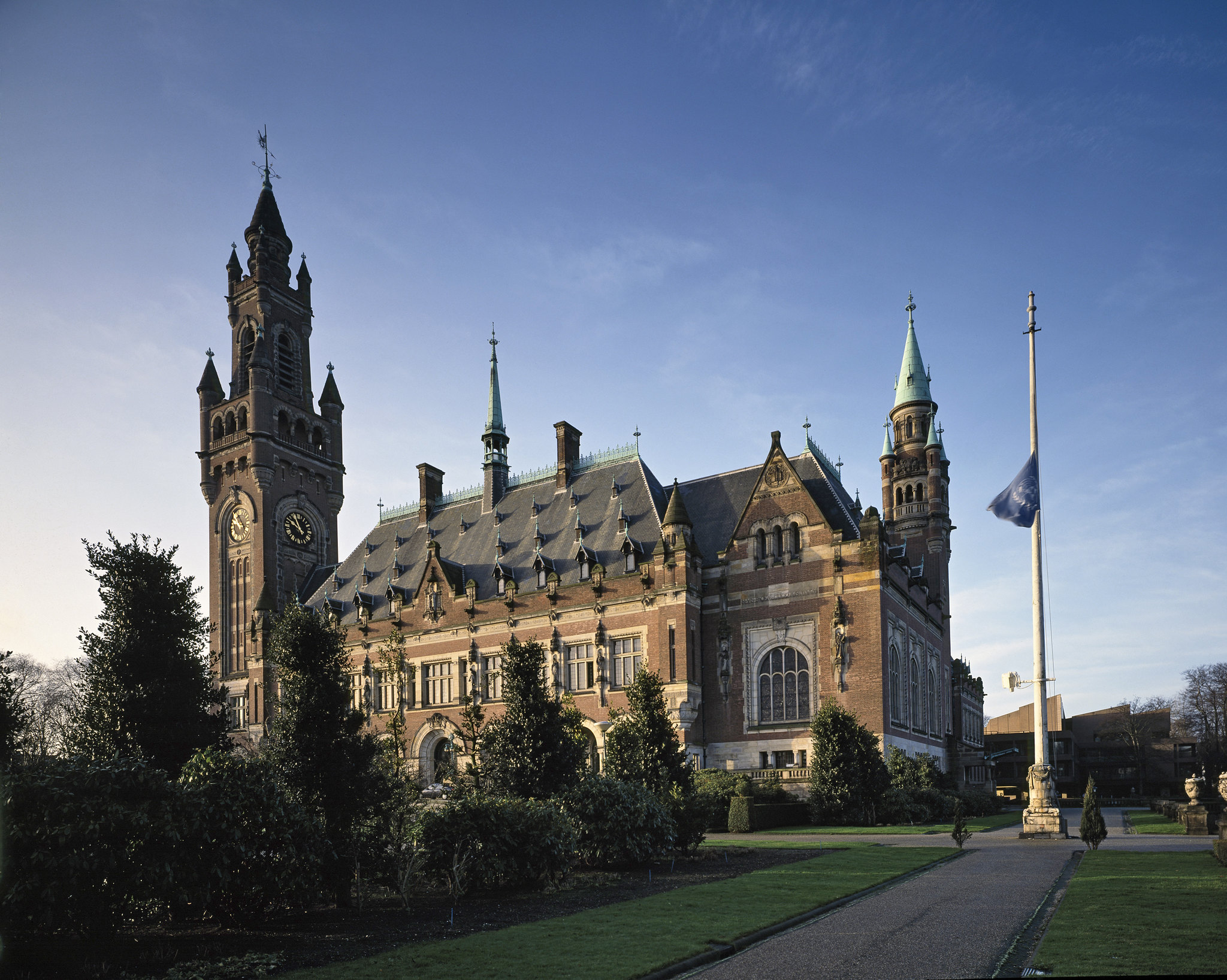Kiobel: Justice Kennedy Questions Extraterritorial Application of the ATS
The narrow question presented in the Kiobel v.
Published by The Lawfare Institute
in Cooperation With

The narrow question presented in the Kiobel v. Royal Dutch Petroleum case is whether corporations may be held liable for violations of international law under the Alien Tort Statute. But during this morning’s Supreme Court argument, Justices Kennedy, Roberts, and Alito all seemed more interested in addressing the issue of the extraterritorial application of the ATS than the question of corporate liability.
Justice Kennedy, who has a longstanding interest in international law and who many observers expect to be the swing vote in this case, set the tone with the very first question from the bench to Paul Hoffman, counsel for the plaintiffs:
Justice Kennedy: “But, counsel, for me, the case turns in large part on this: page 17 of the red brief. It says, “International law does not recognize corporate responsibility for the alleged offenses here. And the -- one of the -- the amicus brief for Chevron [written by Jack Goldsmith, a former Kennedy clerk] says, “No other nation in the world permits its court to exercise universal civil jurisdiction over alleged extraterritorial human rights abuses to which the nation has no connection. And in reading through your briefs, I was trying to find the best authority you have the refute that proposition, or are you going to say it is irrelevant?”
Justices Roberts and Alito piled on:
Justice Alito: “Well there’s no particular connection between the events here and the United States. So, I think the question is whether there’s any other country in the world where these plaintiffs could have brought these claims against the Respondents.”
Chief Justice Roberts: “If -- if there is no other country where this suit could have been brought, regardless of what American domestic law provides, isn’t it a legitimate concern that allowing the suit itself contravenes international law?”
Justice Alito: “The Alien Tort Statute was enacted, it seems to be -- there seems to be a consensus, to prevent the United States -- to prevent international tension, to -- and -- does this -- and this kind of lawsuit only creates international tension.”
Justice Kennedy reverted twice more to the foreign relations impact of ATS litigation, noting the brief filed by the United Kingdom and the Netherlands opposing extraterritorial application of the ATS, and chiding Deputy Solicitor General Ed Kneedler for the position of the U.S. Government that U.S. courts should not look to “international consequences.”
Justice Ginsberg appeared to defend the extraterritorial reach of the ATS by suggesting that the Supreme Court had endorsed its application in Filartiga: “…I thought that -- that Sosa accepted that Filartiga would be a viable action under the tort claims act.”
But Justice Kennedy wouldn’t agree to this: “…I agree that we can assume that Filartiga is a binding and important precedent for the Second Circuit. But in that case the only place they could sue was in the United States….In this case, the corporations have residences and presence in many other countries where they have much more -- many more contacts than here.”
None of this suggests, of course, that Justice Kennedy will vote to affirm the Second Circuit’s ruling. But it does demonstrate that he is sensitive to the diplomatic tensions caused by extraterritorial application of the ATS. Whether this issue is dispositive for him in this case, or whether he and the other justices wait to address it in Rio Tinto (whose cert petition is scheduled for conference this Friday), or some other future case, remains to be seen.
(For the record: I also focused on the diplomatic friction caused by extraterritorial application of the ATS, citing the many diplomatic protests to the State Department, in the amicus brief I wrote with Paul Clement and in the op-ed I wrote for the Washington Post last Friday.)
John B. Bellinger III is a partner in the international and national security law practices at Arnold & Porter in Washington, DC. He is also Adjunct Senior Fellow in International and National Security Law at the Council on Foreign Relations. He served as The Legal Adviser for the Department of State from 2005–2009, as Senior Associate Counsel to the President and Legal Adviser to the National Security Council at the White House from 2001–2005, and as Counsel for National Security Matters in the Criminal Division of the Department of Justice from 1997–2001.




